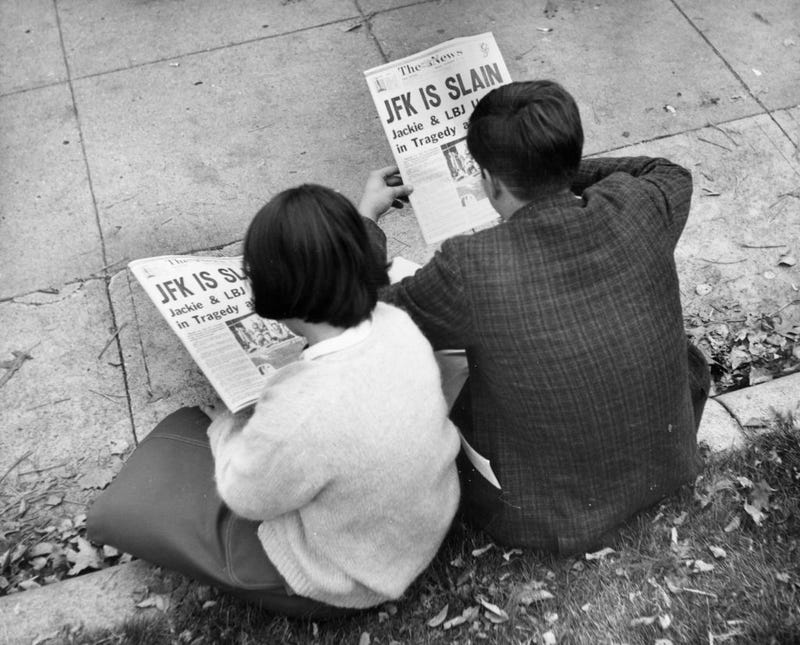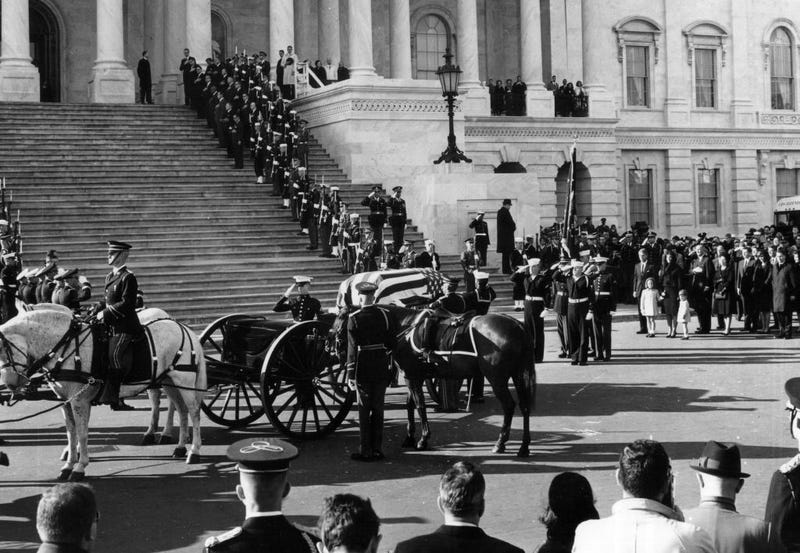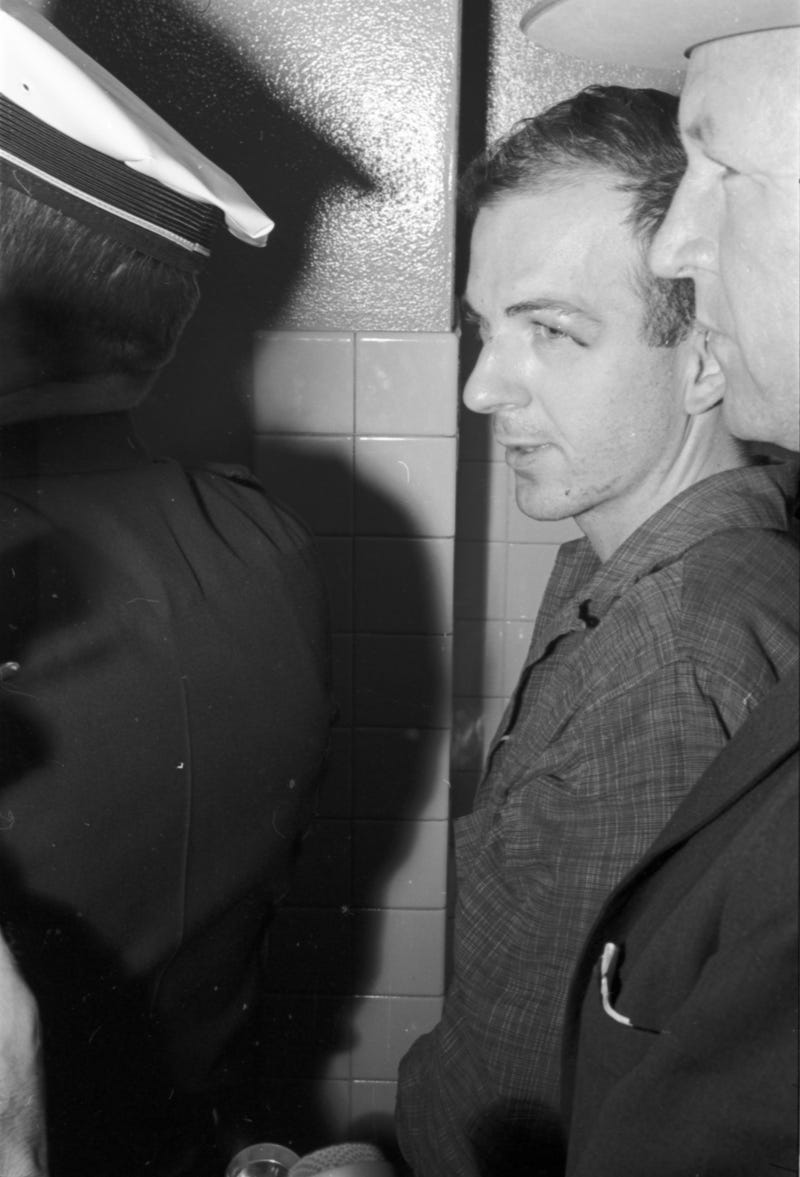
Wednesday is the 60th anniversary of the assassination of President Kennedy, a seismic national event that predates most American lives but remains an inflection point in the country’s history.
It's also a volcano of conspiracy theories, a debate over what JFK might have achieved, and an emotional moment for those that lived through it.
Mostly, it's a mystery that is left unsolved.
"Anybody of that generation kind of ahead of me was sort of like, maybe there's more, right? And then you begin to realize when you dig deeper into it that actually the government contradicting itself in various investigations," Soledad O'Brien, who is co-hosting a podcast on the JFK assassination with filmmaker Rob Reiner told WCCO.
Answers from the United States Government have been met by the American public with massive amounts of skepticism (such as the Warren Report), and with more questions than answers (The United States House of Representatives Select Committee on Assassinations in 1979). Both of those volumes try to answer questions, but they don't fully explain what happened on November 22, 1963.
Was it a Conspiracy?
The 1979 House Select Committee on Assassinations states that the committee had found "a high probability that two gunmen fired" at the president. This conclusion resulted from the last-minute “discovery” of a Dallas police radio transmission tape that allegedly provided evidence that four or more shots were fired in Dealey Plaza. After the report appeared in print, acoustic experts analyzed the tape and proved conclusively that it was completely worthless—thus negating the finding.
So was it or wasn't it? The bulk of the evidence is available to the public now, thanks to the President John F. Kennedy Assassination Records Collection Act of 1992. But not all of it is released yet, with a seeming trickle of evidence being released, and more of it released just this year. In those 5 million-plus pages are.... more questions?
Was another government involved? The CIA? The mafia? We might never know.
"I always think that conspiracy theories are too high level for government officials," O'Brien told WCCO. "I honestly don't feel that enough government officials are smart enough to pull this stuff off. And coordinate it enough to pull this off. I still think about that today. People are talking about the Deep State. I'm like, how smart do you think these elected officials are? I don't think that they're that organized."
Public Fascination
In the audio above, WCCO Radio's newsroom immediately got reaction from Minnesotans in downtown Minneapolis after the announcement. It's a shocking piece of audio even today, as people came up to the microphone asking "is the president dead?" Many uttering lines such as, "I wasn't a supporter but I'm just in shock over how such a horrible thing could happen."
It's hard to put that in perspective 60 years later, how unreal it was that a U.S. President could be killed in broad daylight.
It's a story that absolutely fascinates people to this day. A lot of that is due to Kennedy himself. During his time in the White House, Kennedy was beloved by many, despised by many, and in the years since his death the public has only grown to love him more. He notoriously cheated on his wife. His war injuries left him with a horrible back that caused him to end up addicted to painkillers. Much of the ugly side of Kennedy didn't reach the public in the early 1960s, and for many people overshadow what his supporters saw in him: Incredible promise.

The youngest U.S. President, Kennedy won an extremely tight Election over Republican Richard Nixon (some might say stole the Election). It would be a troubled and difficult time for the Kennedy Administration, but it was also met with such admiration and hope. The White House was dubbed "Camelot" after the imaginary reign of King Arthur. It embodied courage, diplomacy, and self-sacrifice.
Unfortunately, it ended much like the fictional Camelot: a mythical time of unfulfilled promise thanks to that 1963 assassination.
Kennedy's short term included security challenges, chiefly the failed Bay of Pigs invasion, and the Cuban Missile Crisis, but also included high points like the formation of the Peace Corps, the March on Washington, and the signing of the 1963 Partial Test Ban Treaty on nuclear weapons.
There was also Vietnam. The early days of the war in Southeast Asia loomed large, with Kennedy trying to push the U.S. out of conflict against the wishes of much of Washington, especially those in the military and fuel much of the "conspiracy theory around his assassination to this day.
The End
It was a visceral end for the president that fateful Friday in Dallas. His motorcade rolling through Dealay Plaza, top down, sun shining, the president and his beautiful wife Jacqueline waving to the crowd. Shattered by gunshots, infamously captured by clothing manufacturer Abraham Zapruder on 8 mm camera, Camelot came crashing down.

Of course at that point and as multiple movies, documentaries, books etc. have told us, all hell broke loose. The car sped off to Parkland Hospital and the president is confirmed dead. Lee Harvey Oswald arrested for shooting a Dallas Police Officer and is eventually charged with killing the president. Oswald was then killed, on live television no less, two days later by nightclub owner and sometime mobster Jack Ruby.
It was something America had never seen unfold live in front of their eyes, and they emerged shocked, saddened, and most of all angry and distrustful. Perhaps, those feelings persist to this day.
It seems any story you write about the John F. Kennedy assassination ends up filled with question marks, much like the investigations into his murder have been. 60 years later, we're still asking questions and not answering them. Maybe someday.
